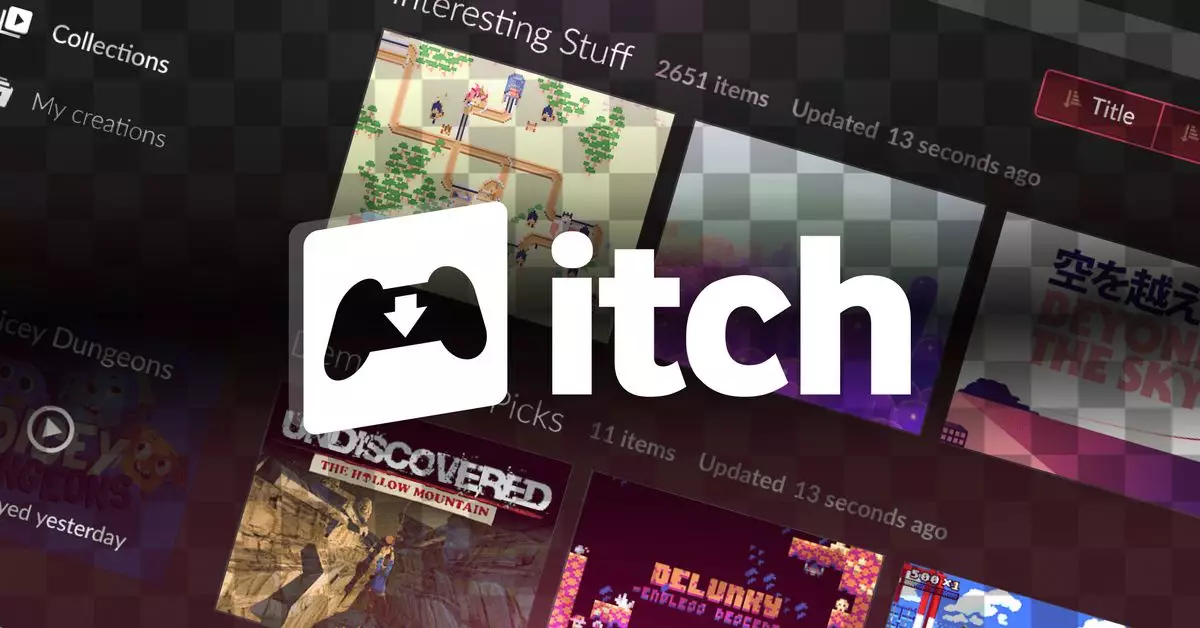Itch.io, an indie game storefront beloved for its wide selection of unique titles, has recently plunged into a chaotic situation that has rendered its platform largely inaccessible. The troubles began with a phishing report that the company has classified as unfounded. The store’s website is experiencing connectivity issues, attributed to an erroneous claim made by Funko, a well-known company specializing in pop culture collectibles. Funko’s adoption of an “AI-powered” brand protection software, Brand Shield, has created a ripple effect, leading to domain registrar iwantmyname disabling Itch.io’s domain due to the automatic response mechanisms that often govern such systems.
This unfortunate development has significant repercussions for Itch.io’s user base. Although the site’s servers are ostensibly still operational, the domain itself has ceased to function for a majority of its users. Developers and gamers alike are left in limbo, unable to access the platform for both gaming and development needs. This scenario has an especially poignant impact on those who are actively publishing new titles or promoting their games on the site, potentially missing out on valuable connections and sales opportunities.
Furthermore, a unique feature that Itch.io recently rolled out, allowing users to link their Itch.io profiles to Bluesky accounts, has fallen victim to this disruption. This feature, intended to enhance user engagement, has resulted in “invalid handle” errors for those who took advantage of the new option, compounding frustrations during the outage.
In a bid to mitigate the fallout, Itch.io is engaged in a waiting game with its domain registrar. The company optimistically hinted at a resolution within hours, hoping to avoid the dramatic step of launching a new domain altogether. The disappearance of this familiar web address could undermine user trust, especially for a platform that thrives on community engagement and independent creators.
For those who are technically inclined, Itch.io has provided an interim solution by sharing an IP address, 45.33.107.166, that can be manually mapped to access the site. However, such a workaround is not simplistic for all users, and it underscores the larger issue of digital accessibility and user experience. The expectation that users will fiddle with their hosts files is reflective of the kinds of exceptional measures that some tech-savvy individuals take when confronted with unforeseen challenges.
As Itch.io navigates this rocky road, it brings to light significant concerns about the reliability of automated systems and technological dependencies in managing online platforms. For users and creators who rely on the platform for visibility and income, the incident serves as a vivid reminder of the vulnerabilities that can arise in the digital landscape. Itch.io’s community is resilient, and while the current setback poses challenges, it also showcases the importance of adaptability and open communication in times of crisis. As we await the restoration of the beloved indie storefront, one can only hope that lessons are learned to prevent such issues in the future.

